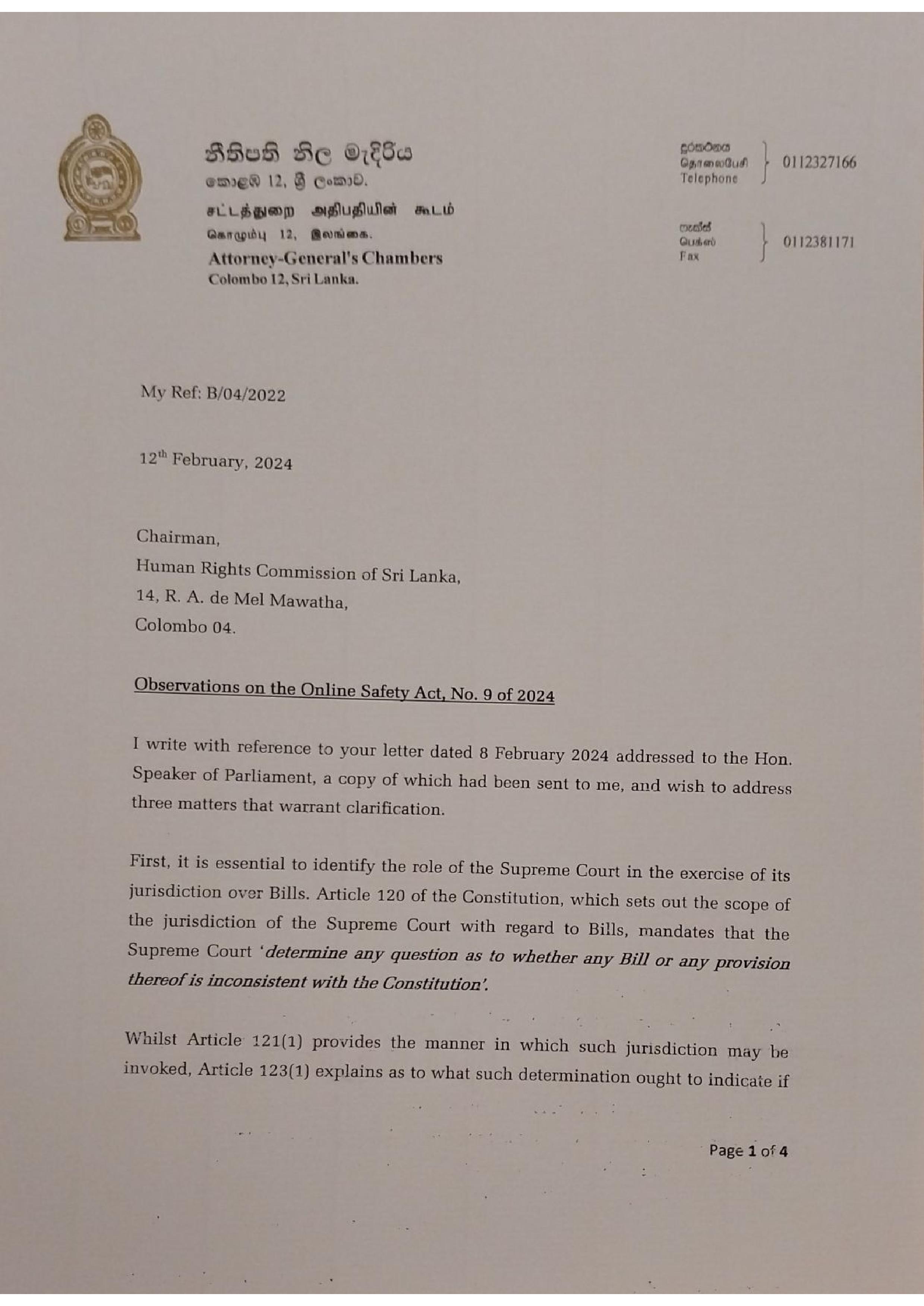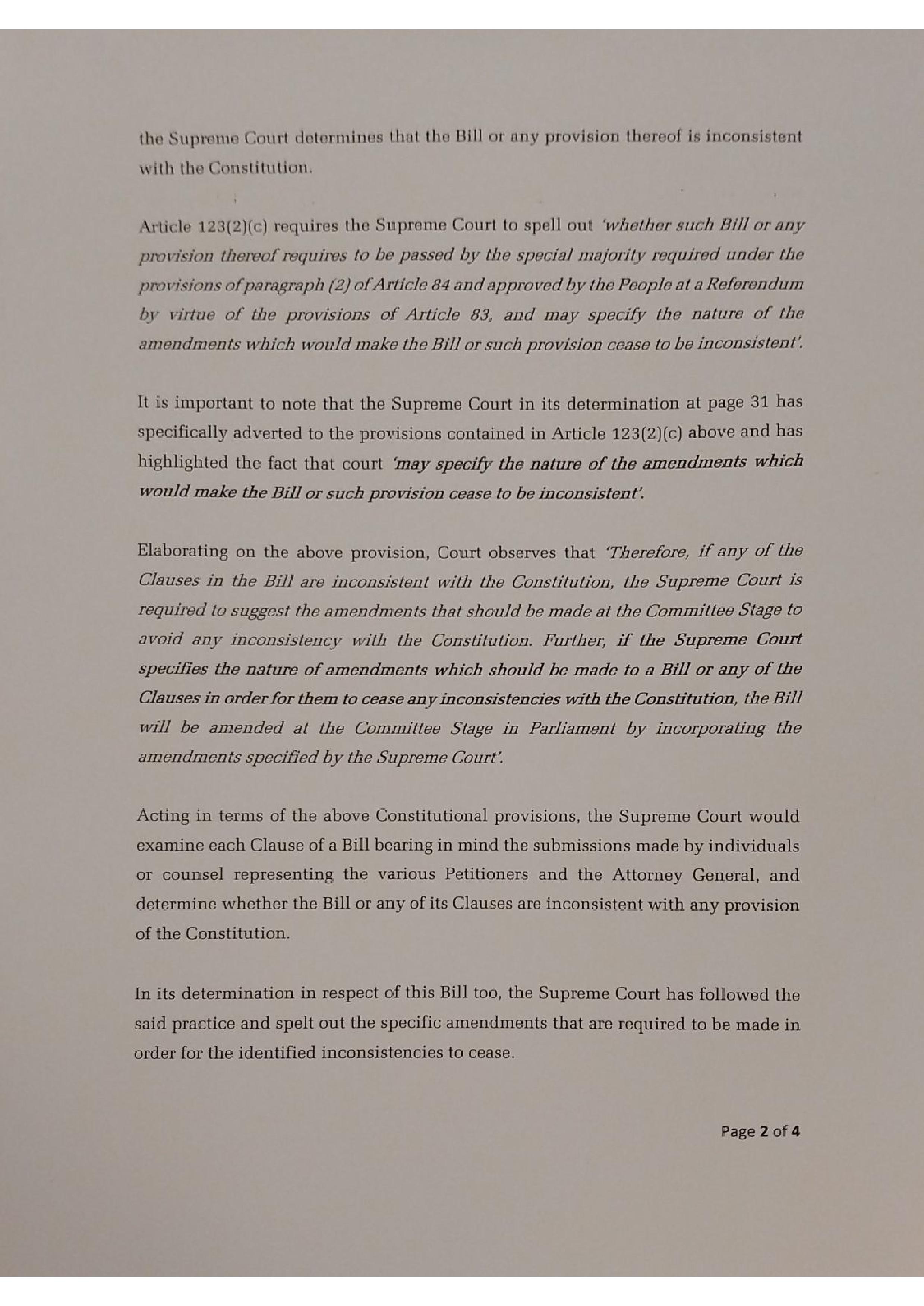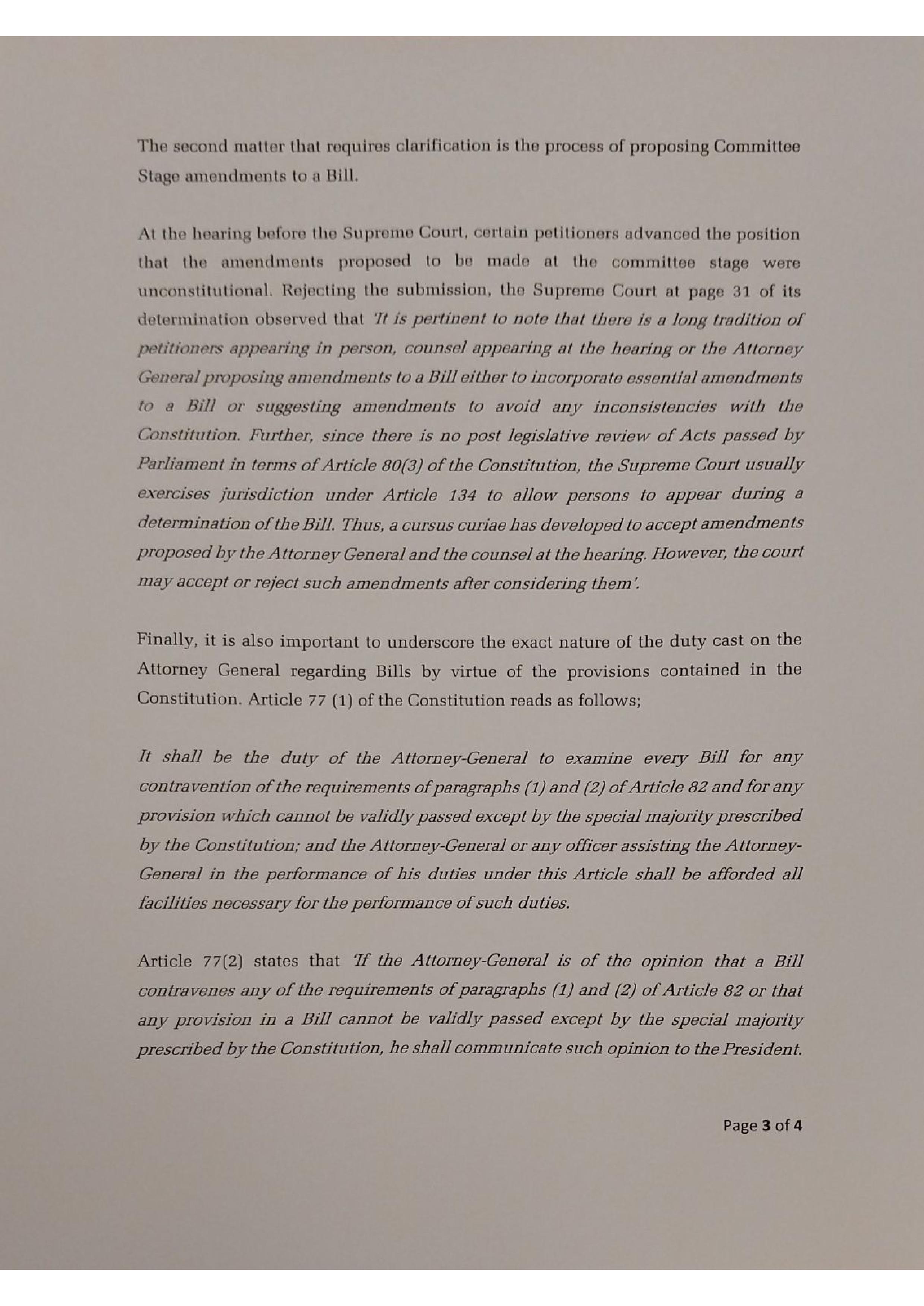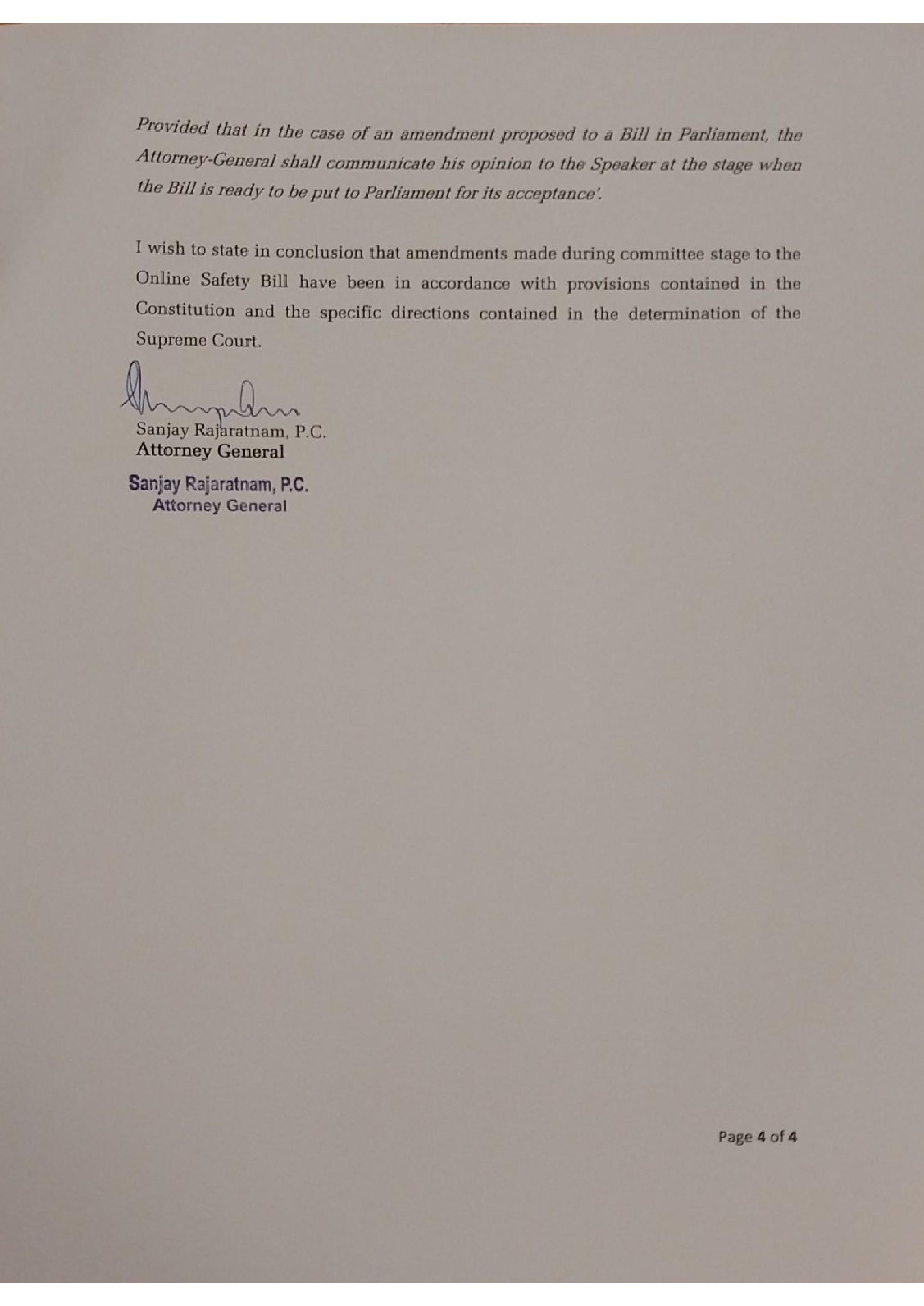.webp)
-734541.jpg)
Online Safety Bill Amendments in Line with Constitution, Says AG
COLOMBO (News 1st); The Attorney General emphasized that amendments made to the Online Safety Bill during the committee stage fully comply with constitutional provisions and the Supreme Court's specific directions.
Attorney General Sanjay Rajaratnam, PC today addressed concerns surrounding the Online Safety Bill, clarifying the roles of the Supreme Court, Committee Stage amendments, and his own responsibilities.
The Attorney General emphasized the Court's constitutional power to review bills, citing Article 120 which grants them authority to "determine any question as to whether any Bill or any provision thereof is inconsistent with the Constitution."
Responding to concerns about the legality of Committee Stage amendments, the Attorney General referenced the Supreme Court's decision, which acknowledged the practice of petitioners, lawyers, and the Attorney General proposing amendments during hearings.
He stressed that this aims to avoid inconsistencies with the Constitution, with the Court ultimately reviewing and deciding on the proposed amendments.
Citing Article 77, the Attorney General reiterated his duty to examine bills for violations of specific constitutional articles and provisions requiring special majority votes. He stated that upon discovering such violations, he would communicate his concerns to the President or Speaker, as appropriate.
He statement comes as a response to the statement previously issued by the Human Rights Commission of Sri Lanka, which highlighted Constitutional Inconsistencies in the Online Safety Act, that was recently passed in the Parliament.
HRCSL Statement:
The Human Rights Commission of Sri Lanka (HRCSL) expressed deep concern about the potential non-compliance of the recently enacted Online Safety Act with the Supreme Court's Determination.
In a letter to the Speaker of Parliament, the HRCSL highlighted that the Supreme Court had identified over 30 clauses and omissions in the original Online Safety Bill that were inconsistent with the Constitution.
While the Court allowed Parliament to proceed with the Bill after incorporating specific amendments, the HRCSL's review of the enacted Act suggests these changes may not have been fully implemented.
The Commission emphasizes that enacting legislation without addressing the Court's concerns raises serious questions about the Act's compliance with the Constitution, particularly regarding fundamental rights protections.
The letter expresses unease over the possibility that the Act may have been passed with a simple majority despite requiring a special majority due to its inconsistencies with the Constitution.
It added that the precise wording of the Supreme Court with regard to certain clauses in are not reflected in the act, while some clauses that were recommended from to be deleted from the bill remain in the Act.
The HRCSL stressed that full compliance with the Court’s Determination on a Bill is, therefore, crucial to guaranteeing the fundamental rights of the people of Sr Lanka.




Other Articles
Featured News





.png )

-820875_550x300.jpg)
-820869_550x300.jpg)








-819380_550x300.jpg)


-812087_550x300.jpg)
-810262_550x300.jpg)








.webp)






